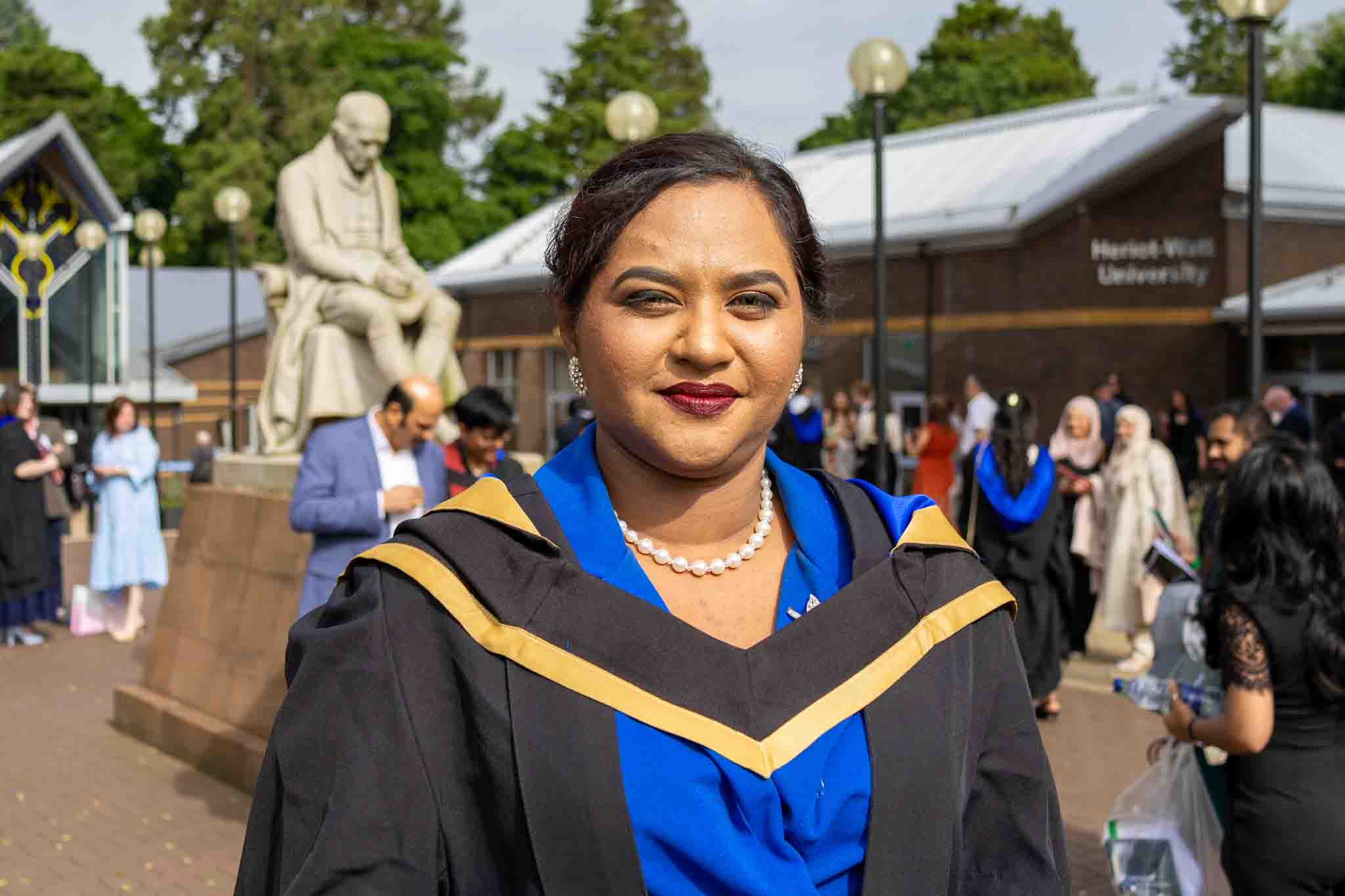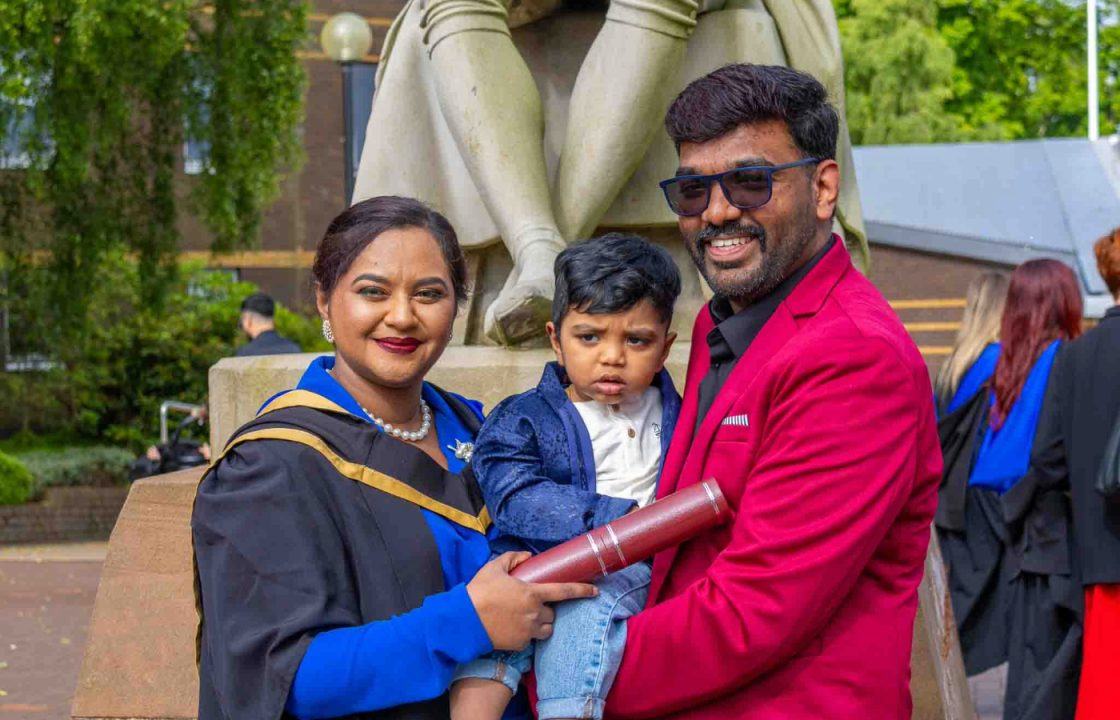A student has opened up about overcoming “crippling” postnatal depression after a surprise pregnancy while attending Heriot-Watt University.
Helan Vinod said she felt “emotionally crippled” and admitted to experiencing suicidal thoughts after giving birth to her son.
The 29-year-old moved to Edinburgh with her husband in February 2022 from their home in South India, and enrolled in her one-year course at the University’s School of Social Sciences.
Shortly after her enrolment, Helan discovered she was pregnant. She said that once the initial worry had subsided, she and her husband were “overjoyed”.
During her pregnancy, she suffered with “debilitating” hyperemesis gravidarum which caused excessive nausea and vomiting as well as being diagnosed with gallstones.
As her condition worsened, Helan noticed a steep decline in her mental health that began to affect her studies.
“Being a new mum as well as a new student and trying to grapple with life in a new country, it all became too much for me,” she said.
Helan welcomed her son, named Isaiah, on October 31, 2022 and shortly began to notice a drastic change in herself.
She said she began to feel “emotionally crippled” and experienced suicidal thoughts.
“Although my parents had made the trip to Scotland for the birth, I was feeling really low, tearful and it was an absolute disaster.
“I really don’t know how to put it into words. I was feeling suicidal and was completely helpless,” she said.
The new mum sought advice from the NHS who she said recognised these symptoms “from before the birth” and diagnosed her with postnatal depression.
Affecting more than one in every ten women within a year of giving birth, symptoms can include experiencing extreme highs and lows, frequent crying, feelings of guilt, anxiety and, in some cases, the mother being unable to care for her child.
Despite her struggles, Helan finished her course and was presented with an MSc in Business Psychology with Intercultural Communication during the summer graduation ceremonies in Edinburgh.
 Supplied
SuppliedHelan praised the university for their support in her studies and her recovery.
“The breastfeeding rooms, baby-changing facilities and accommodative attitude of the staff and students were important factors that helped me to cope with this pivotal transition period in my life,” she said.
She remains under the care of mental health services as she continues to recover but is “looking forward” to using her new qualification in the future.
Help and support is available now if you need it. Details of services available can be found at stv.tv/advice
Anyone feeling emotionally distressed or suicidal can call Samaritans for help on 116 123 or email jo@samaritans.org
Follow STV News on WhatsApp
Scan the QR code on your mobile device for all the latest news from around the country


 Supplied
Supplied

























